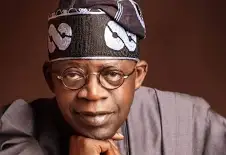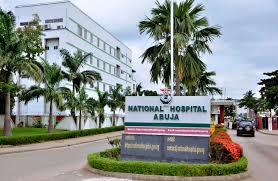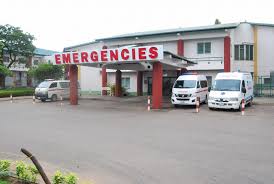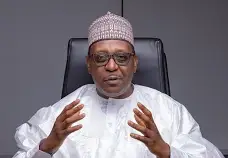Our Correspondent, Gom Mirian who ran into a hypertension patient recently, shares her encounter in this special feature.
“The patient is struggling to afford the cost of her medications”, she observed.
Alarming Cases of Hypertension
High blood pressure, or hypertension, is a prevalent health condition in Nigeria, affecting over 30% of adults. Uncontrolled hypertension can lead to severe consequences such as heart attacks, strokes, and kidney disease, contributing to 10 million global deaths annually.
Effective treatment through quality medications can significantly extend and improve life, yet less than 3% of Nigerians with high blood pressure have it under control.
Often referred to as the silent killer due to its asymptomatic nature, many individuals are unaware of their hypertension status, and even those who are aware struggle to adhere to daily medication regimens, often due to the high cost of medications in Nigeria.
Margaret Smith, a 64-year-old retired school teacher, sits in her cozy living room in Dawaki, a suburb in Abuja, Nigeria with a look of worry etched across her face. She has been battling a silent but fierce enemy: hypertension for the past eleven years, and the rising cost of her medication has forced her to make the difficult decision to skip doses to make ends meet.
“I used to take my medication religiously every day, but it has become so expensive that I have had to skip doses just to make ends meet,” Margaret shares, her voice tinged with frustration. “I know it’s not the right thing to do, but what choice do I have? I can’t afford to keep up with the exorbitant prices.”
Margaret’s struggle with hypertension has taken a toll on her overall health, leading to complications with her kidneys. Despite her doctor’s warnings about the importance of taking her medication regularly, Margaret feels trapped in a vicious cycle of financial strain and declining health.
The 64-year-old who once canvassed for a change in government, chanting ‘Emi l’okan,’ a Yoruba phrase meaning ‘it is my turn.’ believing it would bring about positive reforms in the healthcare sector, now finds herself disillusioned by the reality of the situation.

“I thought that voting for a new government would bring about positive change, but little did I know that it would only make things worse for people like me who are struggling to afford their medication,” she reflects.
Factors Responsible for High cost of hypertension drugs:
The high cost of medications in Nigeria has become a significant barrier to accessing adequate healthcare, leading to dire consequences for those with chronic conditions like hypertension.
During his inauguration ceremony, Tinubu announced the removal of a fuel subsidy, which resulted in an unprecedented increase in petrol prices. This also affected the cost of various goods and services and contributed to an inflation rate of above 34.7 per cent. The cumulative economic effects have been harsh, especially for the vulnerable – including retirees and low-income earners.
Amidst the downturn, the devaluation of the naira and the consequent shortage of foreign exchange have contributed to the high cost of medications for Nigerians like Margaret who are not on insurance coverage and have to pay out of their pocket.

Across Nigeria, many individuals, particularly retirees like Margaret, are facing similar challenges when it comes to affording essential medications. The high cost of drugs has become a barrier to accessing adequate healthcare, leading to dire consequences for those with chronic conditions like hypertension.
To shed light on this pressing issue, Africa Health Report, (AHR) spoke to another patient, 58-year-old Samuel Okoye, who is also grappling with the burden of expensive medication. Samuel, a former banker, was diagnosed with diabetes, and hypertension two years ago and has struggled to keep up with the cost of his insulin injections and hypertension drugs.

Both Margaret and Samuel are not alone in their plight. The high cost of essential medications in Nigeria has become a significant public health concern, affecting the most vulnerable members of society.
According to the World Health Organization, (WHO), high blood pressure puts one in three Nigerians at risk, revealing that millions of Nigerians cannot access the healthcare they need due to financial constraints, leading to increased morbidity and mortality rates.
Growth in population, a move towards more urban living, and changes in lifestyle including diet have contributed to this dramatic growth, experts say.
Expert Opinion
The global health body recommends that people with hypertension get access to proper healthcare, but in developing countries like Nigeria, the situation is complicated. This has been worsened by the fallout of economic policies made by President Tinubu’s administration.
Medical experts emphasize the critical importance of medication adherence and regular monitoring to control blood pressure levels and reduce the risk of complications. Dr. Odiah, a cardiologist, explains the dire consequences of hypertensive patients skipping their medications, stating, “When patients skip doses, their blood pressure remains uncontrolled, leading to an increased risk of heart attacks, strokes, kidney damage, and even death.”
In an interview with AHR, Dr. Odiah emphasizes the importance of government intervention in reducing the cost of essential medications, stating that access to affordable healthcare is a fundamental human right that many Nigerians are unable to afford due to high prices.
Finding Solutions:
To address this pressing issue, the Nigerian government has launched several initiatives to reduce the cost of essential drugs and improve access to healthcare services for all citizens. One such initiative is the National Health Insurance Scheme (NHIS), which aims to provide affordable health insurance coverage to individuals and families across the country.
In January, the value of drugs imported into Nigeria was estimated at 900 billion naira ($606m), showing a high dependency on imported medicines. The federal government announced a $240m investment in pharmaceuticals, but more needs to be done to address the situation.
On 28th June 2024, President Bola Tinubu signed an Executive Order introducing zero tariffs, excise duties, and VAT on imported pharmaceuticals to revitalize Nigeria’s Health Sector.
This executive order, along with other initiatives to curb inflation and cushion the effects of the removal of fuel subsidies, aims to make healthcare more affordable for all Nigerians.
As Margaret grapples with the burden of her health and the financial strain of her medication, she remains hopeful that real change will come soon. “I pray that the government will take decisive action to make healthcare more affordable for all Nigerians. We cannot continue to suffer in silence while our health deteriorates due to the high cost of drugs,” Margaret declares with determination.
The plight of individuals like Margaret and Samuel highlights Nigeria’s urgent need for comprehensive healthcare reforms. Access to affordable medications is a basic human right that economic constraints or bureaucratic inefficiencies should not compromise.
As the government grapples with the economic implications of reducing drug prices and improving access to healthcare services, it must prioritise the well-being of its citizens and ensure that no one is left behind. Only through concerted efforts and sustained investment in the healthcare sector can Nigeria truly achieve its goal of providing quality healthcare for all.



